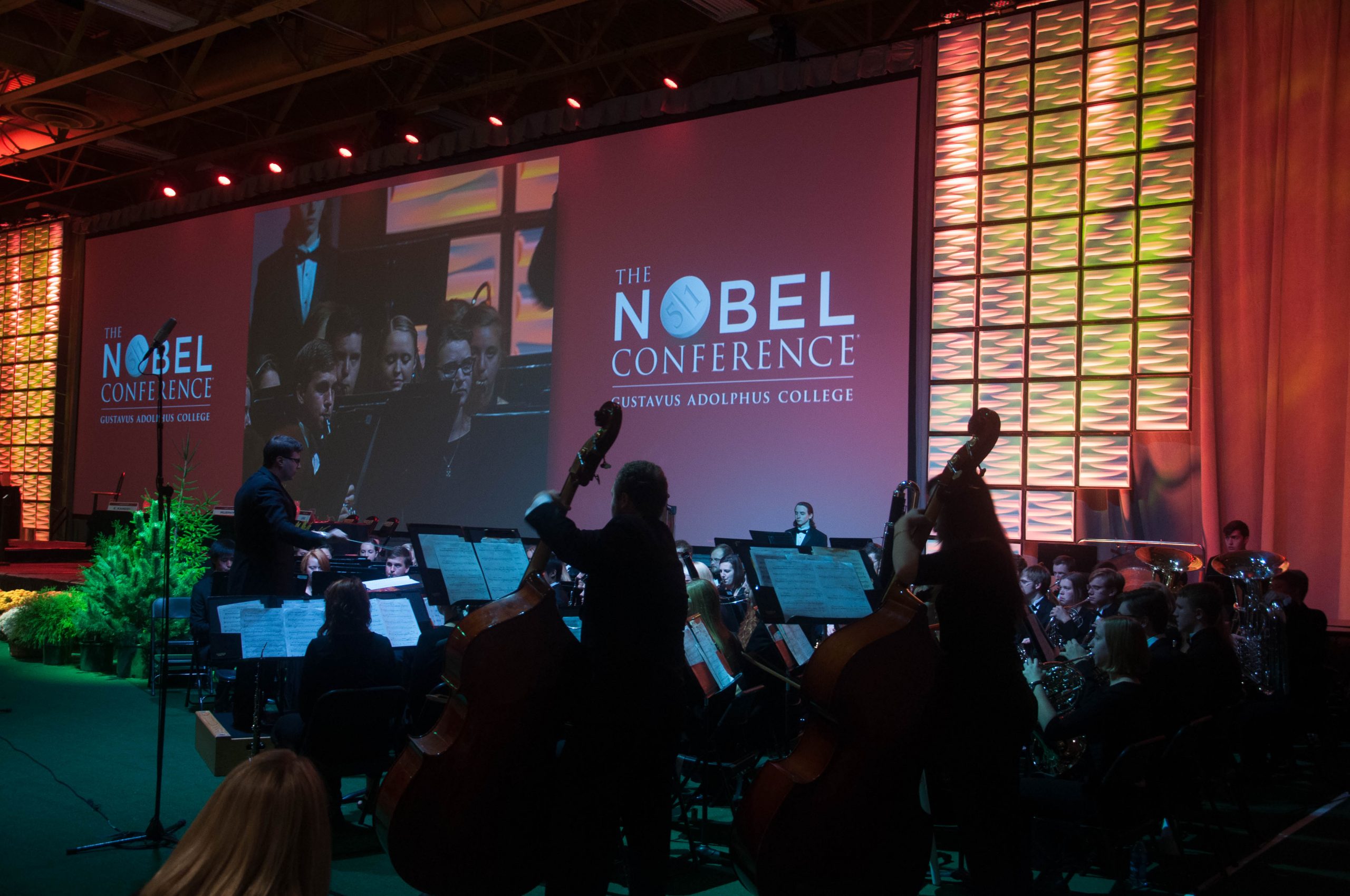Students are settled into their dorms, the leaves show signs of contemplating color changes, and professors have (hopefully) stopped revising their syllabi. It is time to welcome the 52nd Nobel Conference to our quaint campus.
This year’s conference arrives earlier than any in recent memory, taking place Tuesday, September 27, and Wednesday, September 28. With this powerhouse of academic and scientific thought comes the Nobel Conference Concert, bringing a broader and more artistic experience to attendees on the first night, starting at 7:00 pm.
“A lot of talking and thinking at the conference,” Professor Yumiko Oshima-Ryan, concert piano player and current chair of the music department said. “How about listening?”
Yumiko first became involved in the Nobel Concert four years ago, and is glad to see it taking place for the first time not in Christ Chapel, but Bjorling Recital Hall in the Fine Arts building, which is a dream come true for her.
“Live classical chamber music always brings a special quality to any gathering,” Barb Leibundguth, flute instructor and performer for the event said. “Our concert will provide an entertaining evening event that showcases Gustavus arts faculty.”
The focus of this year’s conference is the search for economic balance, for which Leibundguth believes the six part Francis Poulenc song was wisely chosen.
“The piece exemplifies one aspect of economy–every note is perfect and nothing is wasted,” Leibundguth said.
Also speaking to the benefits of holding a concert in the midst of the scientific symposium is professor, performer and Gustavus Philharmonic Orchestra conductor Justin Knoepfel.
“I love bridging the gap between the left and right brains. These concerts do just that and it has been a pleasure to be invited these number of times,” Knoepfel said.
This will be Knoepfel’s third Nobel Concert, in which he will play a solo piece by César Franck, the Violin Sonata in A Major, which Knoepfel has personally transcribed for viola.
Preparations for this concert began as early as the day after last year’s concert, but that doesn’t mean that rehearsal has been a cakewalk for the various Gustavus faculty musicians involved. For example, finding the time when six busy music instructors could practice Poulenc’s Sextet proved to be challenging, and it’s no simple piece to begin with.
“The jazzy rhythms are sometimes tricky to coordinate with six players,” Leibundguth said, who is revisiting the number after last performing it almost 40 years ago. “it’s challenging to bring out all the different moods of the piece, from very soft and floating, to very loud and super-fast.”
Sarah Erickson Lume, woodwind instructor at the college and Oboe player for the concert, also attests to the difficulty of the work.
“The Poulenc is challenging and requires many, many, many hours of individual preparation before we even come together as a group, but playing together is an excellent way to connect professionally and ultimately strengthens our department,” Lume said.
Nevertheless, everyone seems excited to be working with one another, especially when they come from such varied schools. The parts in the Poulenc are comprised of piano, oboe, flute, clarinet, bassoon and French horn.
While the headlining Nobel Conference requires ordering tickets in advance to ensure access, this concert is entirely free of charge. With only a limited number of seats being in the Jussi Björling Recital Hall, however, it is advised that attendees show up early to the seven pm. performance to secure seating.
All in all, this year’s Nobel Conference Concert is on track to impress and enthrall its audience. The talented instrumental staff at Gustavus have poured many hours, both alone and when joining forces, into producing something truly special to complement the Nobel’s display of scientific prowess. For Knoepfel, this concert is a key aspect of the two day event.
“It is an essential moment in time for reflection and admiration of what is deemed valuable.” He encourages everyone to attend,” Knoepfel said.
